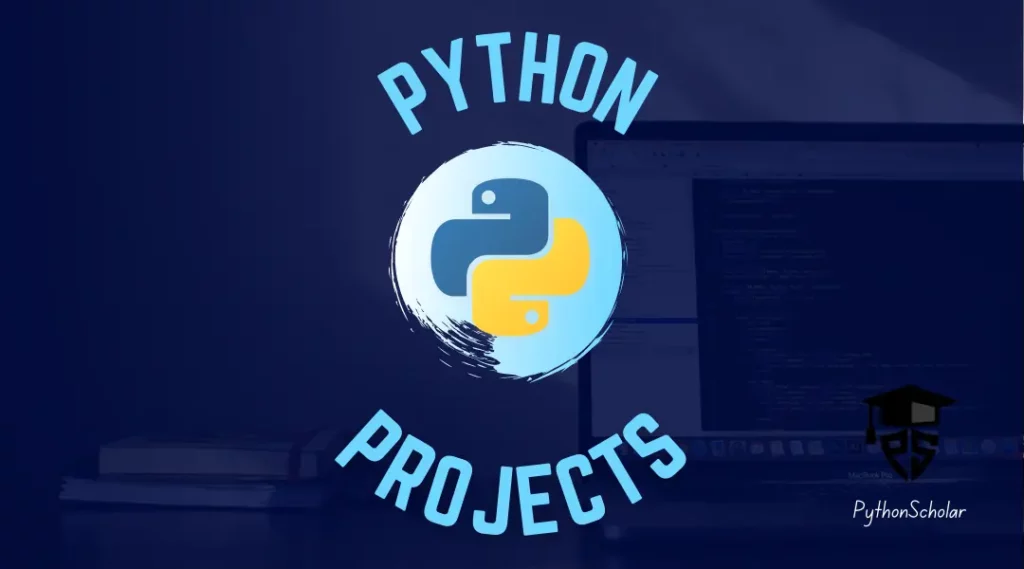
List of Python Projects
Learn to Generate QR Code Using Python
Face Detection Project in Python
How to make an Email Slicer in python
Bank Management System Project in Python
How to make a Hangman Game in Python – [GUI Source Code]
How to Make a Rule based Chatbot in Python using Flask
Convert Celsius to Fahrenheit in Python – [With Chart]
Dice Rolling Simulator in Python – [GUI Source Code]
How to Create Mad Libs game in Python
Importance of Python Projects
- Skill development: By working on Python projects, developers can develop and enhance their skills in programming, problem-solving, and software development. They can learn new libraries, frameworks, and techniques, which can improve their efficiency and productivity.
- Hands-on experience: Python projects allow developers to gain hands-on experience in developing real-world applications. This experience can help them understand how to design and develop software that meets the needs of their clients or users.
- Career advancement: Building Python projects can demonstrate a developer’s skills and experience, which can help them advance in their career. Python is widely used in data science, machine learning, web development, and many other areas, so having experience with Python projects can open up new job opportunities.
- Personal growth: Working on Python projects can be a great way for developers to challenge themselves and learn new things. They can explore new areas of programming, experiment with new technologies, and improve their problem-solving skills.
- Community involvement: The Python community is large and supportive, and building Python projects can be a great way to get involved. Developers can share their projects, get feedback, and contribute to open-source projects, which can help them build their reputation and network with other developers.
Overall, Python projects are an important part of a developer’s learning and career journey, as they provide hands-on experience, skill development, and personal growth opportunities.
Why Python Project is Necessary?
- Applying programming concepts: Python projects help in applying programming concepts learned through books, courses or tutorials. These projects provide practical experience that reinforces theoretical knowledge.
- Improving problem-solving skills: Developing a Python project requires breaking down a complex problem into smaller, manageable components. This helps improve problem-solving skills and logical thinking.
- Building a portfolio: A portfolio of Python projects demonstrates a developer’s skills and knowledge to potential employers. These projects showcase the developer’s ability to create applications, algorithms and solve real-world problems.
- Learning new technologies: Python projects require the use of various technologies such as web frameworks, libraries, and databases. Developing a project helps to learn these new technologies and use them in a real-world scenario.
- Contributing to the community: Developers can contribute to open-source Python projects or develop their own projects and make them available to the community. This helps in building a strong network of like-minded people, sharing knowledge and experiences.
- Career advancement: Python is a popular programming language that is used in various industries. Developing Python projects can open up new job opportunities and enhance a developer’s career prospects.
Tips for improving python skill with help of python projects
Here are some tips for improving your Python skills with the help of Python projects:
- Start with simple projects: Choose simple projects that match your current skill level. This will help you gain confidence and avoid getting overwhelmed.
- Solve real-world problems: Focus on projects that solve real-world problems. This will help you understand the practical application of Python and make your learning experience more relevant.
- Break down the project into smaller parts: Break down the project into smaller parts or modules. This will help you focus on one specific task at a time and make the overall project more manageable.
- Use best practices: Follow best practices such as coding standards, proper documentation, and testing. This will help you develop good coding habits and make your code more maintainable.
- Collaborate with others: Collaborate with other developers on open-source projects or work on projects with a team. This will help you learn from others, get feedback on your work, and gain experience in working with others.
- Experiment with new technologies: Experiment with new technologies and tools such as web frameworks, libraries, and APIs. This will help you stay up-to-date with the latest trends and expand your knowledge beyond the basics.
- Practice regularly: Practice coding regularly, even if it’s just a few minutes a day. This will help you build a habit of coding and make learning Python more consistent and effective.
By following these tips and working on Python projects, you can improve your Python skills and become a better developer. Remember that practice and persistence are key to mastering any skill.
